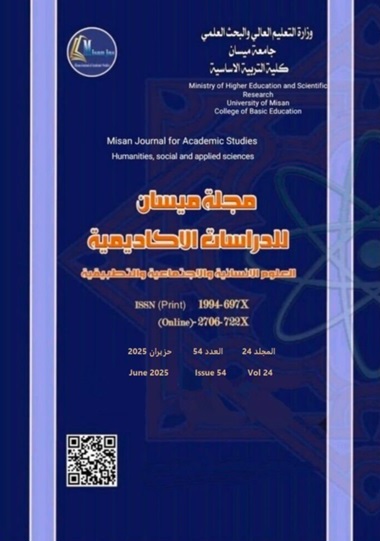Evaluating the Government Hospitals’ Efficiency and Their Impact on Human Development in Iraq
Abstract
Actually, hospitals are considered most important and prominent healthcare institutions providing healthcare services. They are the cornerstone upon which a city relies to obtain these services, as they care for people's health and psychological well-being, enabling them to perform their duties effectively. They also provide all medical and consulting specialties. Given their importance, they are located in an urban area that is a convenient location to ensure accessibility for residents, as well as ensuring access to all their treatment and hospitalization needs.
The current study aims to examine the reality of healthcare services in terms of number and geographical distribution, achieving balanced growth between the number of government hospitals and healthcare personnel on the one hand, and the quality of healthcare services on the other. It also aims to achieve human and health development to meet the community's needs for health services, both quantitatively and qualitatively. The study has found that the highest percentage of government hospitals was concentrated in the Iraqi capital (Baghdad), with (35) hospitals, including (9,297) doctors with various specialties. This was in addition to the unfair distribution of government hospitals among the Iraqi governorates, with Muthanna and Kirkuk governorates recording the lowest number of government hospitals
Downloads
Copyright (c) 2025 (Humanities, social and applied sciences) Misan Journal of Academic Studies

This work is licensed under a Creative Commons Attribution-NonCommercial-NoDerivatives 4.0 International License.
The copyright is also the copyright of the magazine only.
All articles published in our magazine are subject to license terms
Creative Commons Attribution(CC BY-NC-ND 4.0) This license permits the content to be reproduced, redistributed and reused in whole or in part for any purpose free of charge, without any permission from the author(s), researcher or student.
Works submitted to Maysan Journal of Academic Studies for publication in the journal (CC BY-NC-ND 4.0) license terms. Where available content can be shared, distributed and replicated provided there is no commercial profit and appropriate credit must be given to the original source through sources or citations. It is mandatory to review any material used from other sources including shapes, tables, and images for re-use under the terms of the Creative Commons License (CC BY-NC-ND 4.0).Provided that there is no modification to the original content



